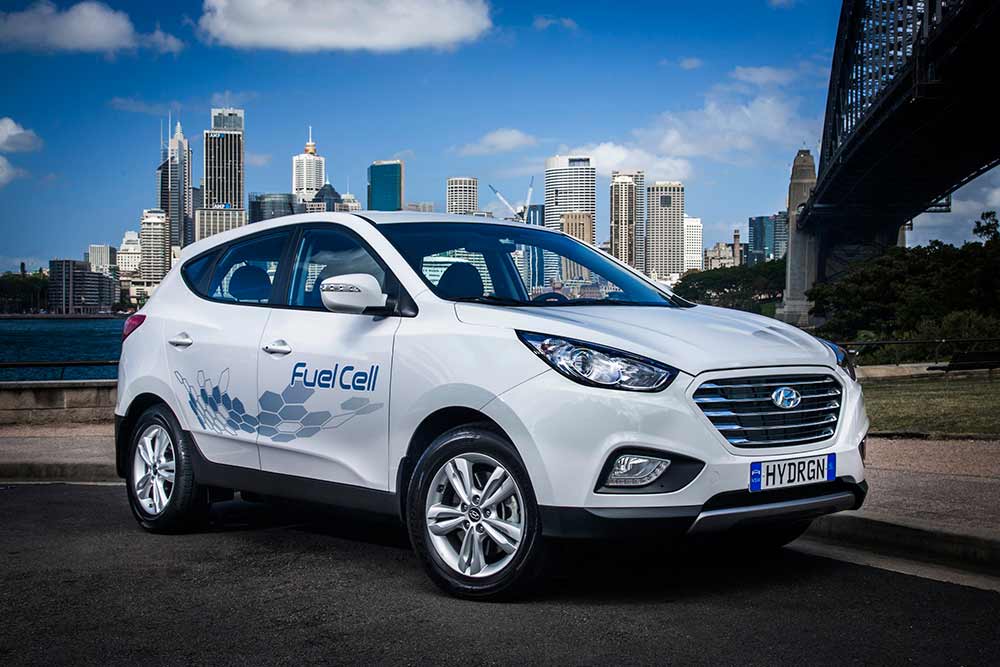
Image: Hyundai Australia.
ACT is pushing forward on its aims to have 100% renewable electricity by 2020 with some renewable initiatives based on hydrogen technology.
The Minister for the Environment and Climate Change Simon Corbell outlined that international businesses will invest $180 million to bring hydrogen energy storage to Canberra, including the first hydrogen-fuelled car fleet and service station.
According to the Minister for the Environment and Climate Change Simon Corbell, “Hydrogen energy storage from 100% renewable energy is an important complementary technology with huge commercial potential.
“The investment was backed by the recent 200MW Next Generation Renewables auction. The companies that were successful were required to make contributions to the government’s vision for Canberra as an internationally recognised centre for renewable energy innovation and investment.
The initiative includes:
• Neoen and Megawatt Capital (developers of the Hornsdale Wind Farm) will invest $55 million in partnership with Siemens and Hyundai to establish a 1.25MW hydrogen electrolyser, which converts electricity to hydrogen. The initiative, to be established in Canberra, will include a refuelling station and service centre and an initial fleet of 20 next generation hydrogen fuelled cars including technical support and research program.
• Union Fenosa (developer of the Crookwell Wind Farm) will invest $125 million including a research and development partnership with the Australian National University and ActewAGL Distribution. This will focus on renewable energy power to gas (ReP2G) and the production of hydrogen from renewable. Plus, how it can be introduced to the ACT gas network or provide support to the electricity network. A pilot testing facility will also be established in the ACT to produce hydrogen from water using the ACT’s 100% renewable electricity supply.
“One of the next great challenges is our transport sector which will overtake electricity to be 60% of our city’s emission in 2020,” Mr Corbell said.
“The future for transport is clear – it is renewable, and it is electric. Both batteries and hydrogen energy storage technologies may have important roles to play as we electrify our vehicle fleets, and have an electricity grid based on 100% renewable energy.
“Hydrogen technologies could be an important complementary technology to battery storage with several advantages as an energy storage medium,” he said.
Mr Minister outlined that hydrogen has a much higher energy density and, in the case of electric vehicles, it is much faster to fill a tank with hydrogen than to charge a battery from the grid. A higher energy density also means a longer driving range.
“Like batteries, hydrogen can be used to support a high penetration renewables grid drawing power when renewable production is excessive and producing power when renewable production is low. The only by-product of this process is pure water which can be recycled through the system.
“Renewables to gas technology may also be an important contributor to a zero carbon future as it allows hydrogen and natural gas to be produced from renewable energy sources like solar and wind energy. It is important that more research be done in this area,” he said.





